Economy (107 found)
JADE: Myanmar’s “Big State Secret”
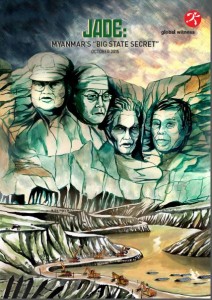 Since 2011, Myanmar’s rebranded government has told the world it is transitioning from a pariah state run by a ruthless military dictatorship to a civilian regime committed to wholesale political and economic reforms […]
Since 2011, Myanmar’s rebranded government has told the world it is transitioning from a pariah state run by a ruthless military dictatorship to a civilian regime committed to wholesale political and economic reforms […]
Myanmar: National report submitted in accordance with paragraph 5 of the annex to Human Rights Council resolution 16/21
1. During the First Cycle of UPR, the promotion and protection of human rights in Myanmar was reviewed on 27 January 2011 at the meeting of the Working Group on UPR […]
• • •Southeast Asia: Deadly Journeys – The Refugee and Trafficking Crisis in Southeast Asia
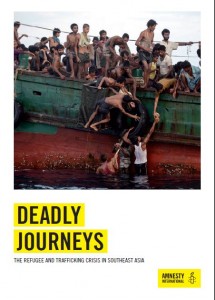 In May 2015 three boats carrying 1,800 women, men and children landed in Aceh, Indonesia. Most of the passengers were Muslim Rohingya, a persecuted religious and ethnic minority from Myanmar […]
In May 2015 three boats carrying 1,800 women, men and children landed in Aceh, Indonesia. Most of the passengers were Muslim Rohingya, a persecuted religious and ethnic minority from Myanmar […]
Forced Displacements and Destroyed Lives around Upper Paunglaung Dam in Shan State, Myanmar
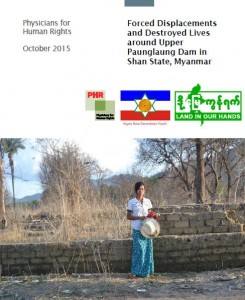 In this report, Physicians for Human Rights (PHR) builds on its previous research on land confiscations in Myanmar by using an epidemiological survey tool to assess the human rights, livelihood, and health impacts on communities displaced by the reservoir created by Paunglaung dam in southern Shan state […]
In this report, Physicians for Human Rights (PHR) builds on its previous research on land confiscations in Myanmar by using an epidemiological survey tool to assess the human rights, livelihood, and health impacts on communities displaced by the reservoir created by Paunglaung dam in southern Shan state […]
2015 ANNI Report on the Performance and Establishment of National Human Rights Institutions in Asia
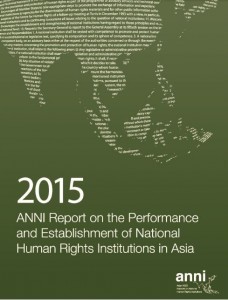 The Asian Forum for Human Rights and Development (FORUM-ASIA), as the Secretariat of the Asian NGO Network on National Human Rights Institutions (ANNI), is glad to present the 2015 ANNI Report on the Performance and Establishment of National Human Rights Institutions in Asia. Our sincere appreciation goes to all 30 ANNI member organisations from across 17 countries in Asia for their participation and commitment to ANNI and continued advocacy towards the strengthening and establishment of NHRIs in Asia. Similarly, we would also like to extend our sincere thanks to the National Human Rights Institutions (NHRIs) that have contributed valuable inputs and feedback to the concerned country reports […]
The Asian Forum for Human Rights and Development (FORUM-ASIA), as the Secretariat of the Asian NGO Network on National Human Rights Institutions (ANNI), is glad to present the 2015 ANNI Report on the Performance and Establishment of National Human Rights Institutions in Asia. Our sincere appreciation goes to all 30 ANNI member organisations from across 17 countries in Asia for their participation and commitment to ANNI and continued advocacy towards the strengthening and establishment of NHRIs in Asia. Similarly, we would also like to extend our sincere thanks to the National Human Rights Institutions (NHRIs) that have contributed valuable inputs and feedback to the concerned country reports […]
Organized Chaos: The illicit overland timber trade between Burma and China
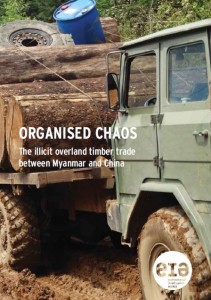 The sweep led to the arrest of 155 Chinese nationals who had been recruited from neighbouring Yunnan Province to cross the border to cut trees and transport timber. The case caused diplomatic tensions between Myanmar and China when the Chinese labourers were given life sentences in July. Just a few days later, all were freed under a general presidential pardon […]
The sweep led to the arrest of 155 Chinese nationals who had been recruited from neighbouring Yunnan Province to cross the border to cut trees and transport timber. The case caused diplomatic tensions between Myanmar and China when the Chinese labourers were given life sentences in July. Just a few days later, all were freed under a general presidential pardon […]
Flight Capital and Illicit Financial Flows to and from Myanmar: 1960-2013
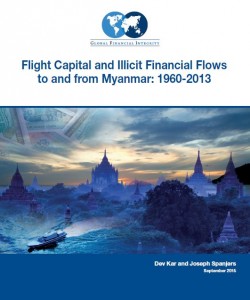 There have been few empirical studies on flight capital and illicit trade flows to and from Myanmar. This may be due in part to significant challenges with obtaining reliable data and statistics on the country. The statistical database is weak, with gaps in data availability, and the methodology used to compile the statistics has not been reviewed for quite some time. Hence, there is a risk that compilers may not have adhered to international guidelines for the compilation of economic statistics […]
There have been few empirical studies on flight capital and illicit trade flows to and from Myanmar. This may be due in part to significant challenges with obtaining reliable data and statistics on the country. The statistical database is weak, with gaps in data availability, and the methodology used to compile the statistics has not been reviewed for quite some time. Hence, there is a risk that compilers may not have adhered to international guidelines for the compilation of economic statistics […]
လူ႔အခြင့္အေရး ကာကြယ္ေစာင့္ေရွာက္သူမ်ားကို ဘယ္လိုကာကြယ္ေပးမလဲ ။
(ရန္ကုန္ၿမိဳ႕ -၂၀၁၅ ခုႏွစ္ ၾသဂုတ္လ ၂၇ ရက္ေန႔) ျမန္မာအစုိးရအေနျဖင့္ လူ႔အခြင့္အေရး ကာကြယ္ ေစာင့္ေရွာက္သူမ်ားအား ပစ္မွတ္ထား ဖိႏွိပ္ျခင္း၊ ခ်ဳပ္ျခယ္ျခင္း၊ ႏွိပ္ကြပ္ျခင္းႏွင့္ လြတ္လပ္စြာ ဖြင့္ဟထုတ္ေဖာ္ ျခင္း မျပဳႏုိင္ဘဲ အသံတိတ္သြားေစရန္ လုပ္ေဆာင္ေနျခင္းမ်ားအား အျမန္ဆံုးရပ္တန္႔ရမည့္အျပင္ ျမန္မာႏိုင္ငံရွိ လူ႔အခြင့္အေရး ကာကြယ္ေစာင့္ေရွာက္သူ (HRD) မ်ားအေနျဖင့္ ၎တုိ႔၏ တန္ဖုိးရွိၿပီး တရား၀င္မႈရွိေသာ လူ႔အခြင့္အေရးလုပ္ငန္းမ်ား အႏၱရာယ္ကင္းကင္း ဆက္လက္ေဆာင္ရြက္ႏုိင္ေစရန္ ဥပေဒႏွင့္ တရားစီရင္ေရး ပိုင္းဆိုင္ရာ ကာကြယ္ေစာင့္ေရွာက္ေရး ယႏၱရားမ်ား အားေကာင္းလာေစေရး မျဖစ္မေနေဆာင္ရြက္ရန္လည္း လုိအပ္သည္ဟု ႏုိင္ငံေရးအက်ဥ္းသားမ်ားကူညီေစာင့္ေရွာက္ေရးအသင္း (ေအေအပီပီ)ႏွင့္ ျမန္မာ့အေရး ပူးေပါင္းေဆာင္ရြက္သူမ်ား (BP) တုိ႔မွ ၎တို႔ယေန႔ပူးတဲြထုတ္ေ၀ေသာ အစီရင္ခံစာတြင္ ေျပာဆုိလုိက္ပါသည္။ […]
• • •Trafficking in Persons Report 2015
BURMA: Tier 2 Watch List
Burma is a source country for men, women, and children subjected to forced labor and for women and children subjected to sex trafficking. Some Burmese men, women, and children who migrate for work abroad—particularly to Thailand and China, as well as ther countries in Asia, the Middle East, and the United States—are subjected to forced labor or sex trafficking. Men are subjected to forced labor in the fishing, manufacturing, forestry, and construction industries abroad, while women and girls are primarily subjected to sex trafficking, domestic servitude, or forced labor in garment manufacturing. NGOs report an increase in the number of Burmese males transiting Thailand en route to Indonesia and Malaysia, where they are subsequently subjected to forced labor, primarily in the fishing industry. Some Burmese men in the Thai fishing industry are subjected to debt bondage, passport confiscation, or fraudulent recruitment; some are also subjected to physical abuse and forced to remain aboard vessels in international waters for years. Reports indicate some Rohingya asylum seekers transiting Thailand en route to Malaysia are sold into forced labor on Thai fishing boats, reportedly with the assistance of Thai civilian and military officials. Burmese women are transported to China and subjected to sex trafficking and domestic servitude through forced marriages to Chinese men; Burmese government officials are reportedly occasionally complicit in this form of trafficking […]
• • •Human Rights are Called Universal for a Reason – In English and Burmese
For many years in Burma, a person carrying a copy of the Universal Declaration of Human Rights risked arrest and even jail. Underground human rights networks distributed copies and organised discussions on the articles it contained […]
• • •
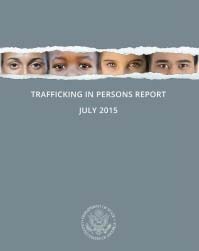
 All posts
All posts